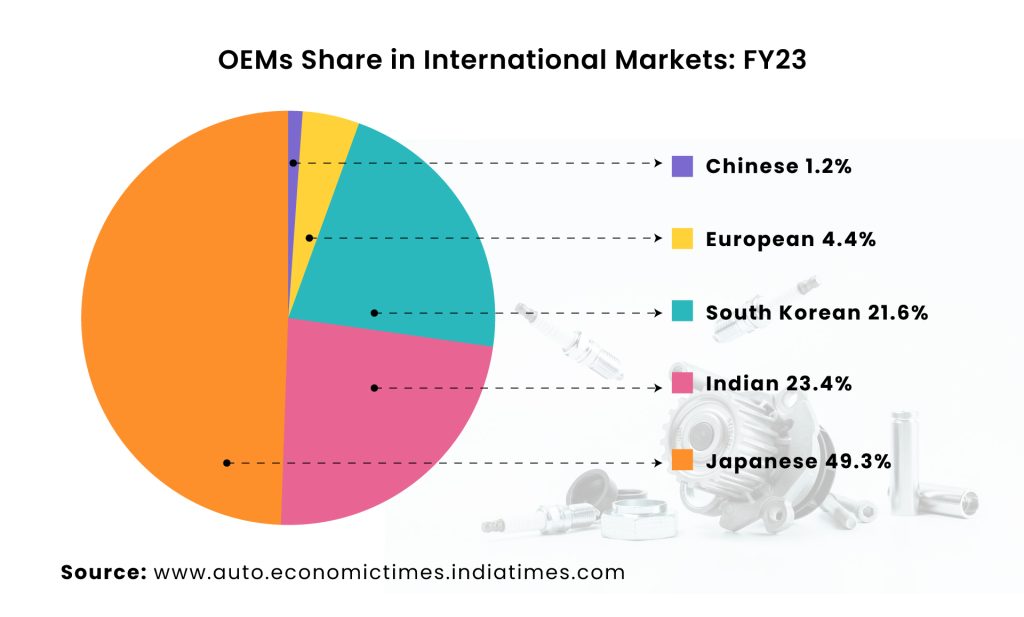Dominating 90% of EV Financing: How OEMs Utilise Tech-Enabled Working Capital Financing to Fulfil Requirements
Demand fluctuations, coupled with the shutdown of production units and interruptions in supply chains, have severely tested the resilience of the automotive industry in the past.
Bearing a significant brunt of these disruptions are the Original Equipment Manufacturers (OEMs).
There is a large chunk of working capital tied up for OEMs, with PwC reporting an average increase of up to 10 days in the capital commitment period of OEM businesses.
That said, large industrial-promoter groups are more keen than ever to engage with multiple (and regionally) diverse OEM suppliers, which are ideal for providing specialised machinery and components in addition to expertise in design and engineering.

Apart from addressing supply chain issues such as the availability of semiconductor chips—timely financing solutions will be key to helping OEMs preserve as much working capital as possible for sustainable growth.
In this article, we take a look at how tech-enabled working capital financing is scaling India’s OEM growth.
Addressing OEM’s working capital conundrum
Recent reports show that OEMs in India account for one of every four cars sold in the country. As a matter of fact, the Indian auto component industry relies heavily on domestic OEM demand, which accounts for over 50% of its sales.

In the EV space, specifically, OEM suppliers are experiencing tectonic shifts in their operations, with EV sales nearly doubling in 2023.
That’s not all. EV-ride-hailing companies have entered the market, driving up the demand for EVs to a whole new level. BluSmart, an all-electric ride-hailing startup, recently raised $25 million to expand its EV fleet and charging infrastructure. Ather Energy, Zypp Electric, and Ultraviolette are some of the other startups leading the EV revolution in India.
Indian EV startups have raised close to $2.6 billion since 2015. Notably, EV OEMs have received the highest amounts of investment so far, taking up 60.5% of the funding deals.

On the downside, OEMs in general have longer gestation periods, with lead times between 6 and 18 months.
The bigger problem?
Be it a semiconductor or any other necessary component, they require full payment upfront. Suppliers of these components operate on a ‘first-come, first-served’ basis. This means that OEMs willing to make these upfront purchases will end up having funds tied up in their on-hand inventory for the entire length of the product’s lifecycle. This could take anywhere from 3 to 10 years, and for some complex industrial OEM businesses like aerospace, the duration could last close to 20 years before they can get a return on their investments.
Add to that—unfavourable contract terms and conditions, high demand volatility, and numerous participants along the value chain—OEMs are up against monumental working capital challenges.
Working capital financing: Ushering in growth for OEM suppliers
In light of these challenges, it becomes crucial for OEMs to not just have inventory on hand when needed but also to secure robust working capital financing to sustain their supply chain operations and ensure the uninterrupted flow of capital.
Moreover, as the competition heats up, automotive brands are now demanding investments in newer technologies from their OEM suppliers. To be able to compete in the fast-paced automotive world, OEMs need easy and affordable access to significant chunks of working capital.
Deploying best-in-class technologies in working capital financing, especially in the fields of onboarding, reconciliation, and real-time underwriting—facilitates timely access to credit for capacity upgrades, investments in advanced technology, and expansion plans.
FinTechs are stepping up with next-gen working capital financing
Harnessing the power of, data-driven decision-making, and purpose-built solutions—FinTechs are introducing working capital financing solutions to fortify supply chain networks, bolster operational efficiencies, and optimise cash flow for OEMs.
By delivering comprehensive working capital financing and invoice management solutions to broaden financial accessibility, FinTech firms are making inroads into the supply chain financing sector through strategic collaborations with banks.
From anchor-led supply chain financing to digitised invoice financing solutions, FinTechs are saving OEMs from incurring revenue losses due to unsold inventory, payment delays, or demand volatility.
OEMs are shifting gears with tech-enabled financing solutions
According to a report by PwC, ‘Digital Supply Chain Champions’ are players who are already benefiting from higher revenue and lower costs by leveraging digital technologies and advanced supply chain capabilities.

Considering how India is among the fastest-growing of the 10 largest automobile markets in the world, intelligent tech-enabled working capital financing solutions are critical to ensuring OEMs can sustain operational expenses and get better at managing their cash flow.
FinTechs such as CredAble are equipped with cutting-edge digital solutions in terms of onboarding, underwriting, and credit scoring. This gives OEMs greater flexibility in working capital management in an otherwise fragmented supply chain market.
Think Working Capital… Think CredAble!
